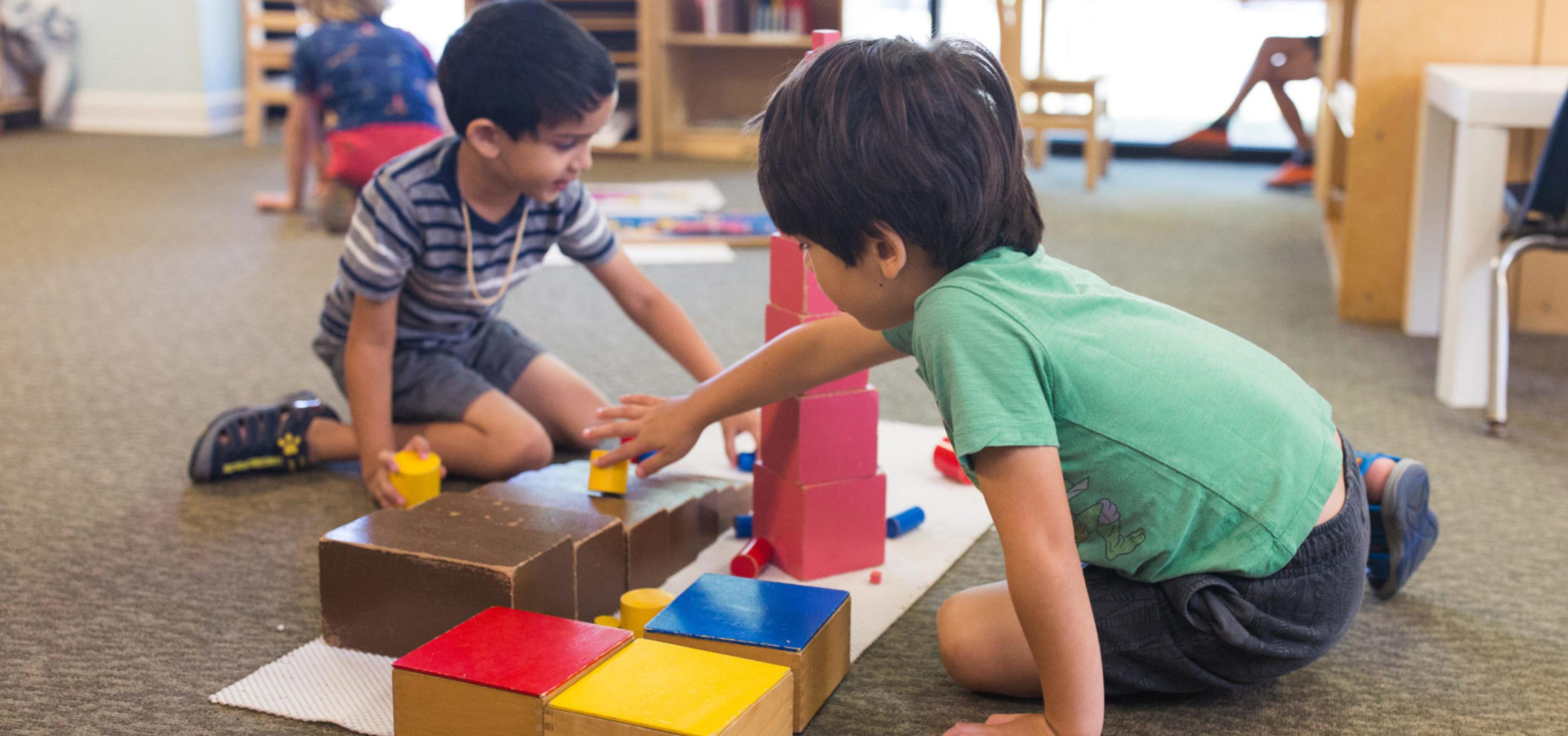Associative play is an important aspect of Montessori education. It is a type of play where children play together, sharing ideas and materials, but do not necessarily have a shared goal or outcome.
What is Associative Play?
Associative play is a stage of play where children engage in play with others, but still maintain a focus on their own interests and goals. During associative play, children share materials, ideas, and experiences with each other, but there is no specific goal or outcome in mind. Children may engage in conversation or observation during this type of play, but they are not working towards a common goal.

Importance of Associative Play in Montessori
- Montessori education encourages associative play as it provides opportunities for children to develop important social and emotional skills. During associative play, children learn to communicate effectively, negotiate, and share resources with others. They also develop a sense of empathy and understanding towards their peers.
- Montessori classrooms are designed to facilitate associative play by providing children with a variety of materials and opportunities for exploration. Teachers encourage children to share materials and ideas with each other, and to engage in conversation and observation during play. By doing so, children learn to appreciate the diversity of their peers' ideas and perspectives.
Benefits of Associative Play in Montessori
Associative play in Montessori provides children with numerous benefits, including:
- Social Development: Children learn to communicate, negotiate, and work cooperatively with others.
- Emotional Development: Children learn to empathise with their peers and understand different perspectives.
- Cognitive Development: Associative play allows children to explore new ideas and develop their critical thinking skills.
- Language Development: Children engage in conversation during associative play, which supports their language development.
- Creativity: Children are encouraged to share materials and ideas, which allows them to explore their creativity and develop their own unique ideas.
Associative play is an important aspect of Montessori education as it supports children's social and emotional development. By incorporating associative play into their classrooms, Montessori teachers are helping children develop important skills that will benefit them throughout their lives.

